
In the dynamic realm of business, staying ahead of the competition is crucial. One of the most effective ways to achieve this is by harnessing the power of a Customer Relationship Management (CRM) system. CRM software have become indispensable for business development, offering a strategic advantage in understanding and managing customer interactions. This comprehensive guide aims to enlighten small business owners and entrepreneurs on choosing the right CRM for business development their unique needs in 2024.

CRM systems serve as strategic assets that provide businesses with the necessary tools to manage customer relationships effectively. By consolidating customer information within a single platform, organizations can access and analyze a wealth of data including customer trends, purchase history, and interactions. This holistic view empowers companies to make informed decisions that are backed by concrete data, leading to the development of precise and effective growth strategies.
As businesses aim to scale and remain competitive, CRM systems provide the insights needed to stay agile and responsive to market demands. With the ability to track the entire sales cycle and customer journey, CRMs play a crucial role in defining the strategic direction a business takes to enhance its market position and achieve sustainable growth.
Through CRM for business development, companies not only streamline their operational workflows but also significantly improve their customer engagement strategies, ensuring long-term success in a dynamic business environment. Leveraging a free CRM can be advantageous for startups and small enterprises looking to optimize customer experience and foster strong business relationships.
The essence of any thriving business is its ability to cultivate and maintain strong customer relationships. CRM systems are instrumental in this regard, offering a comprehensive view of customers and enabling companies to deliver personalized experiences.
By leveraging data gathered from different touchpoints, businesses can tailor their interactions to match individual customer preferences, thereby enhancing customer satisfaction and loyalty. The ability to document and analyze each customer’s history allows businesses to go beyond transactions, fostering a sense of connection and understanding that translates into long-term value for both the company and the customer.
Additionally, CRM for business development plays a crucial role in identifying new opportunities and nurturing leads through effective communication and relationship management. A robust CRM platform streamlines sales processes, facilitates collaboration among teams, and provides insights for strategic decision-making, ultimately driving growth and profitability.
CRM integrates sales and marketing efforts, mobile CRM solutions being particularly advantageous for small business owners. The best CRM for your small enterprise is often a cloud-based CRM, offering scalability and flexibility. These platforms streamline complex business processes by centralizing customer data, enabling better coordination between teams.
With automated workflows and task management, CRM alleviates repetitive tasks, allowing teams to focus on strategic initiatives. CRM provides everything you need for enhanced efficiency, productivity, and revenue growth. Ultimately, CRM can help companies, especially small businesses, gain a competitive advantage by leveraging insights from both sales and marketing teams.

Implementing a new CRM system can transform how you manage customer relationships, streamline operations, and drive sales. However, success is not guaranteed. Here are insights and best practices for a successful CRM rollout, along with strategies to overcome common challenges:
Implementing these strategies can significantly increase the chances of a smooth CRM rollout and ensure your team fully leverages the system’s capabilities.

Customer Relationship Management (CRM) systems are indispensable in the realm of business development, providing profound insights into customer behaviors and preferences. But how exactly does CRM contribute to business growth, and what do current market trends indicate about its future importance?
These insights affirm the essential role of CRM tool in facilitating business development, emphasizing its significance in strategic planning, customer engagement, and data management as companies strive for growth in an ever-evolving market environment.

Choosing the right CRM for business development requires a thorough understanding of your business needs, goals, and the specific features that will add value to your operations. Here are the essential factors to consider:
When selecting a CRM, consider its ability to scale as your business grows. A scalable CRM adapts to increasing customer data, more complex operations, and a growing user base. This ensures your CRM investment remains relevant and effective, even as your business needs evolve.
The “State of Sales” report underscores that high-performing sales teams are 1.5 times more likely to prioritize scalable tools. This foresight ensures that as your customer base and operational complexity grow, your CRM can handle the increased load, making it a sustainable investment.
Integration capabilities are vital. Your CRM should seamlessly connect with existing business tools, such as email platforms, accounting software, and marketing automation tools. This integration streamlines processes, enhances data accuracy, and saves time, leading to a more cohesive business operation. A 2024 report revealed that companies using CRM technology effectively can increase sales by up to 29%.
Customization is key to ensuring that your CRM fits your unique business processes. A customizable CRM can adapt to your specific workflow, sales process, and customer engagement strategies. This flexibility allows for a more personalized approach to CRM, which can significantly improve user adoption and efficiency.
A one-size-fits-all approach doesn’t work in today’s diversified business environment. Gartner predicts that by 2024, 65% of CRM implementations will be driven by the need for more personalized and customer-centric systems.
User experience is critical for ensuring that your team will effectively use the CRM. Choose a CRM with an intuitive interface, easy navigation, and minimal learning curve. A user-friendly CRM increases adoption rates, reduces training time, and enhances overall productivity. According to a Forrester study, CRM system adoption rates can improve by up to 300% when the platform offers an engaging and intuitive user interface.
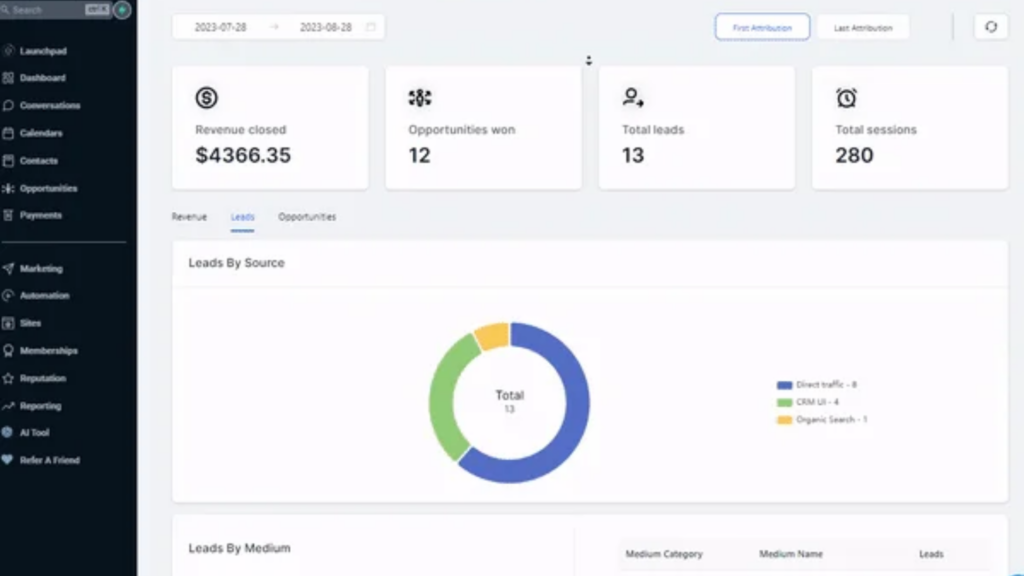
A CRM with robust analytics and reporting capabilities is invaluable. It should provide detailed insights into customer behaviors, sales trends, and marketing campaign effectiveness. This data helps in making informed decisions, identifying opportunities for growth, and measuring performance against business objectives. IDC reports that data-driven organizations are 23 times more likely to acquire customers.
Given the sensitive nature of customer data, security and compliance cannot be overlooked. Your CRM should offer robust security features to protect against data breaches and ensure compliance with data protection regulations. This is crucial for maintaining customer trust and safeguarding your business reputation.
The Ponemon Institute found that the average cost of a data breach reached $4.24 million in 2024, an all-time high. Therefore, investing in a CRM with top-notch security features and compliance standards is crucial to safeguard customer data and maintain trust.
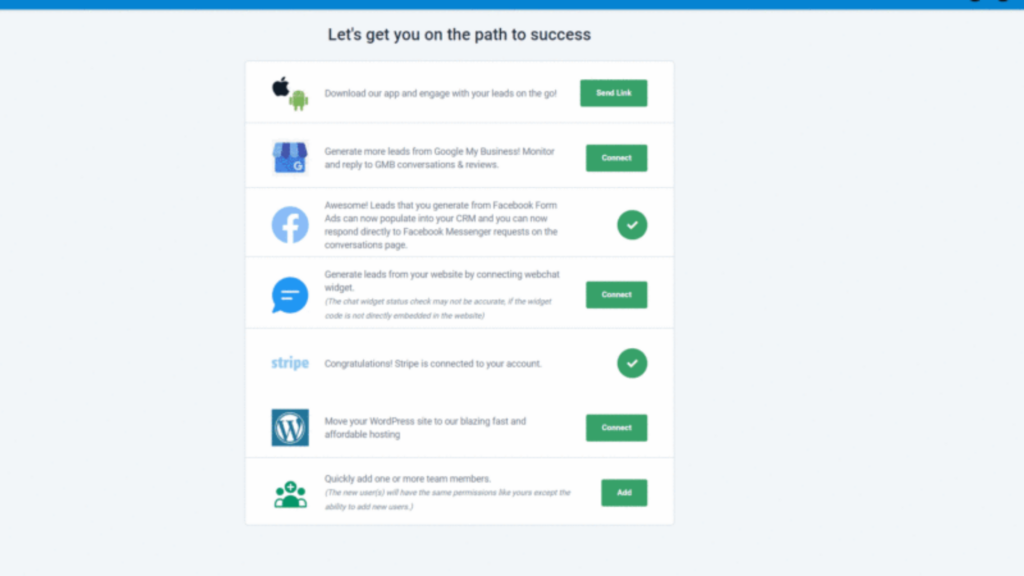
Effective lead generation and management are crucial for business growth. A good CRM should help you capture, track, and nurture leads efficiently. This includes automating lead capture from various channels, providing tools for lead qualification, and enabling seamless lead nurturing processes.
The Aberdeen Group highlights that targeted campaigns, made possible through effective prospect segmentation, can increase revenue by 15%.
Prospect segmentation in a CRM allows you to categorize customers based on various criteria such as demographics, behavior, or purchase history. A report by Mailchimp shows segmented campaigns can lead to a 14.31% higher open rate than non-segmented campaigns.
By categorizing customers based on various criteria, such as demographics or behavior, businesses can tailor their engagement strategies, improving conversion rates and customer loyalty.
CRMs should aid in networking and relationship building by managing and analyzing interactions with customers and prospects. Features that support these activities include tracking communication history, setting reminders for follow-ups, and organizing networking events, which are essential for long-term relationship management.
A CRM with event tracking capabilities allows you to manage and monitor business-related events effectively. This includes scheduling, sending invites, tracking attendance, and post-event follow-ups. Such features ensure that you maximize the business opportunities that events offer.
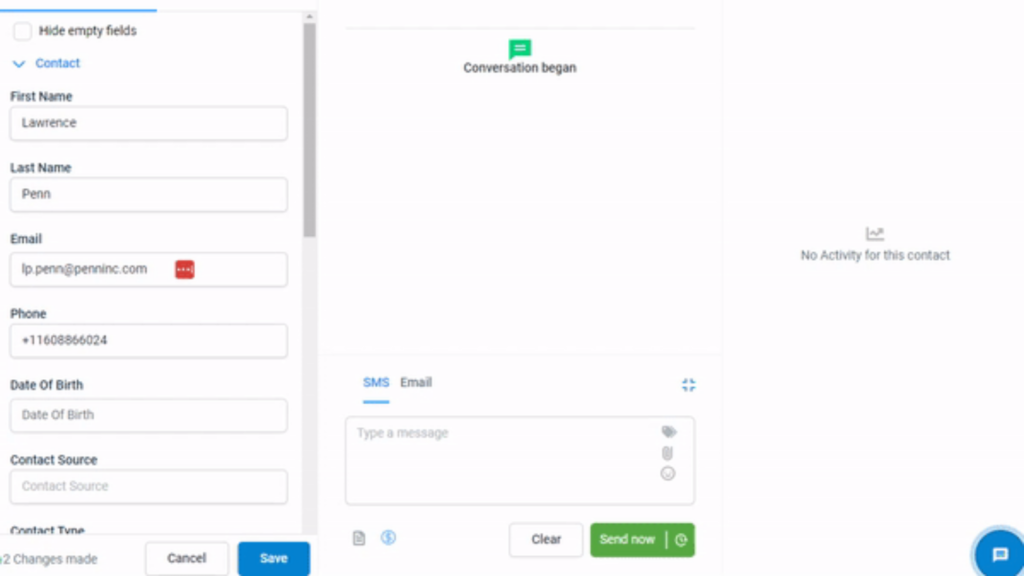
Tracking communication history is essential for maintaining consistent and personalized interactions with customers. A CRM that records all communications, including emails, calls, and meetings, helps in understanding customer needs, preferences, and their journey, leading to more effective engagement strategies.
Efficient task and reminder management features in a CRM help in organizing daily activities and ensuring timely follow-ups. This increases productivity by helping team members prioritize and stay on top of their responsibilities, ultimately enhancing customer relationship management.
Proposal and contract management features streamline the process of creating, sending, and tracking business proposals and contracts. This reduces administrative workload and accelerates the sales cycle, making the process more efficient and professional.
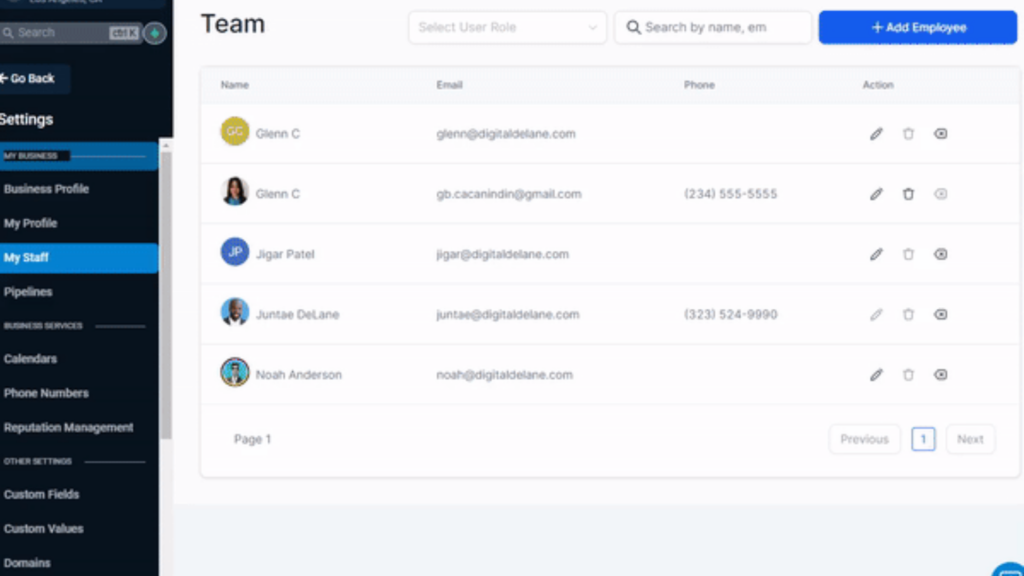
A CRM should facilitate collaboration and teamwork by allowing multiple team members to access and share customer information easily. Features that support real-time updates, document sharing, and team communication channels are essential for coordinated efforts in customer relationship management.
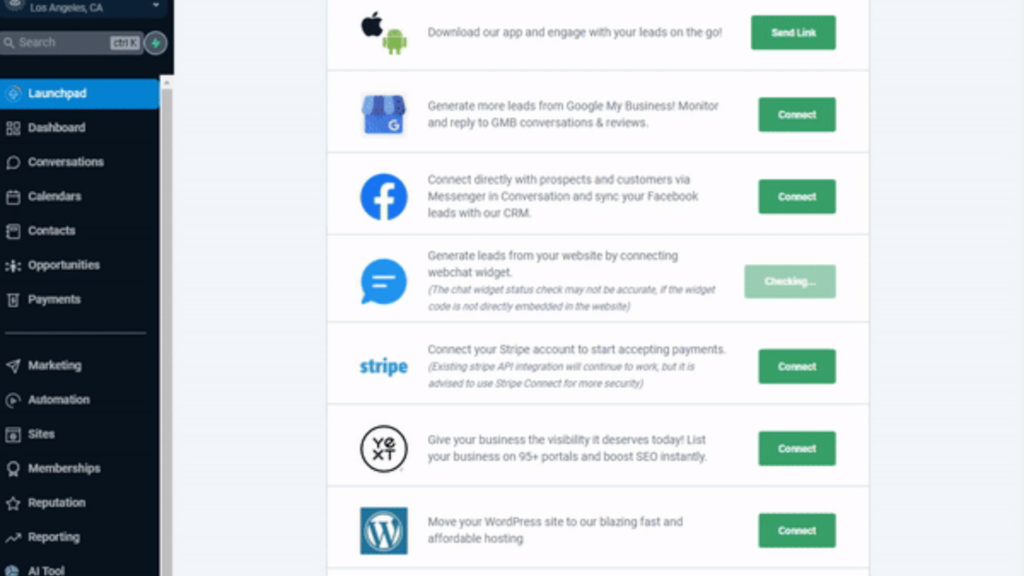
Efficient client onboarding processes in a CRM set the tone for a successful customer relationship. Features that facilitate easy data entry, welcome workflows, and initial engagement strategies help in making a positive first impression and laying the groundwork for long-term retention.
Choose a CRM that stays abreast of industry trends and evolves accordingly. This ensures that your CRM remains relevant and effective in the face of changing market conditions, customer expectations, and technological advancements.
A CRM capable of aiding in market research can provide valuable insights into customer behaviors, preferences, and emerging market trends. This information is crucial for developing targeted marketing strategies and staying ahead of the competition.
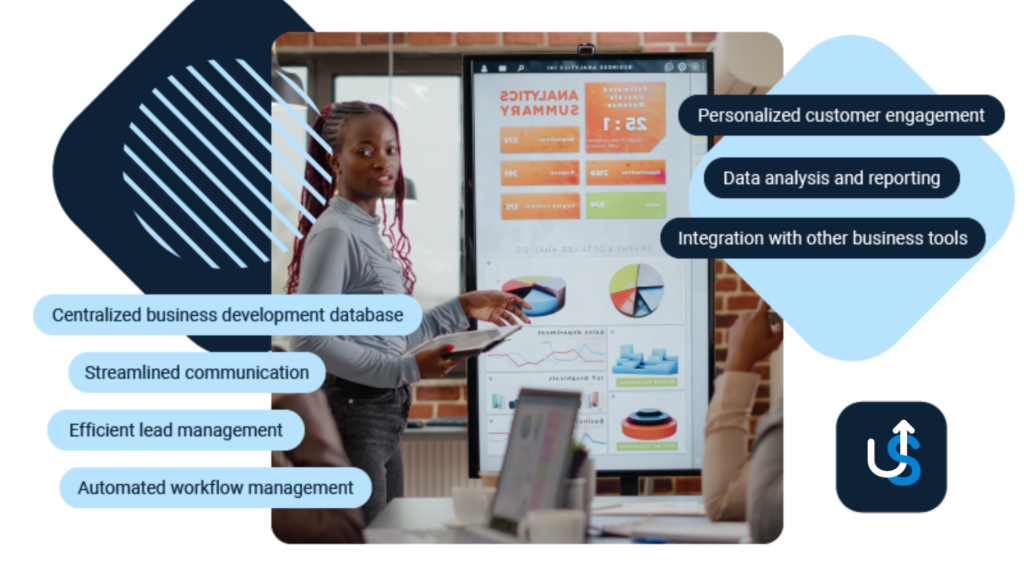
At Upsurge CRM, we understand the unique challenges and opportunities small businesses face in managing customer relationships. Our CRM Template is designed not just as a tool, but as a partner in your business development journey.
Our philosophy centers on a personalized approach, where each feature is crafted to meet the specific needs of small businesses. This tailor-made strategy ensures that our CRM solution aligns seamlessly with your business processes, enhancing both efficiency and effectiveness.
Upsurge CRM stands out with its innovative features and user-centric design. We integrate advanced technologies like AI for content generation and offer a comprehensive suite of tools for lead management, sales pipeline tracking, and marketing automation. Our platform provides robust analytics and reporting capabilities, delivering critical insights for informed decision-making.
Additionally, we emphasize user experience, offering a clean interface and quick setup that minimize the learning curve. This combination of advanced features and user-friendly design makes Upsurge CRM a valuable asset for businesses looking to thrive in a competitive landscape.
Selecting the right CRM for your business is a decision that requires careful consideration of various factors, including scalability, integration, customization, and user experience. By choosing a CRM tailored to your business needs, you empower your team to build stronger customer relationships, make data-driven decisions, and ultimately drive business growth. Remember, a CRM is not just a tool; it’s a strategic asset that can transform your business development efforts. Contact us today to discover how Upsurge CRM can elevate your customer relationship management. Let’s build stronger connections and drive business growth together.

The Real Benefits of Contact Management with CRM for Collecting Customer Data Managing and leveraging customer information has become a foundational aspect of success…
Can a CRM Really Automate My Sales Follow-Ups and Boost My Small Business Revenue? Small businesses face increasing pressure to maintain consistent communication with…
Best CRM Software for Sales Prospecting: Transform Your Sales Prospecting Struggling to turn cold leads into paying customers? You’re not alone. In today’s competitive…